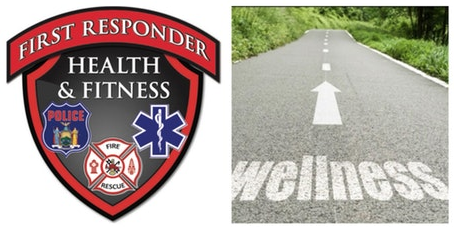
By Rob Shaul
Periodically I receive notes from firefighters and policemen who are developing fitness programs for their departments and reach out for guidance or assistance.
These individuals have been tasked by their commands to develop wide-ranging “wellness” programs that lump fitness in with diet and nutrition, basic healthy living, mental issues, stress management, etc.
A broad-reaching “wellness” program is also what I’ve seen already established at departments.
It’s a mistake to conflate “fitness” in with the other “wellness” issues.
Why? Fitness gets pushed to the back of the line. Inevitably poor nutrition, basic de-conditioning, stress management or another concern jumps ahead and needs to be addressed before fitness can be.
MTI maintains that fitness is a direct safety issue to job performance. It’s not an abstract, “in the background” wellness issue. Unfit, de-conditioned LE officers and Fire Rescue endanger themselves, their teammates, and the public they serve.
To be clear, first responders face obstacles to professional fitness military personnel take for granted:
- Few full-time first responders get paid, time on duty to train. Police and Firefighters must train on their own time.
- Few police and fire stations have training facilities. Police and Firefighters often must pay for a gym membership or equip their own garage gym on their own dime.
- Few first responder units have a high jeopardy fitness test. “High jeopardy” = you can lose your job if you don’t pass. What this means practically is deconditioned first Responders are institutionally allowed to stay that way, which creates morale, leadership and resentment issues in departments
- “Legacy” members are obstacles to serious fitness. Few experienced military personnel in their 40s continue to be on the front lines. At that stage, most are riding desks in leadership or staff positions. The “up or out” military promotion system keeps younger athletes on the front lines. But police and first responders don’t have a similar “up or out” promotion system, and it’s not unusual for police and fireman well into their 50s and 60s to still be on patrol, SWAT teams, the front lines in fire stations, etc. Someone in their mid-60s, who hasn’t trained fitness their entire career, likely will fight to have to do so as part of some new requirement.
- Union resistance … police and firefighter unions often oppose contractual fitness training or testing requirements.
 Also, we’re not arguing that the “wellness” issues of nutrition, basic health, mental services, stress management programs, etc., do not impact first responder job performance. Depending upon the individual, these background issues could have a significant effect.
Also, we’re not arguing that the “wellness” issues of nutrition, basic health, mental services, stress management programs, etc., do not impact first responder job performance. Depending upon the individual, these background issues could have a significant effect.
But this is the difference between these issues and fitness. Poor fitness will impact mission-direct job performance regardless of the individual.
A first responder can have a poor diet, yet still train hard for his or her job and be fit for it. A first responder can be dealing with issues at home, or dealing with job-related stress, yet still strain hard and be fit for the job.
We argue that his or her body is a tactical athlete’s most important piece of equipment. Maintaining it via fitness for the mission-direct job demands is an inescapable, personal, professional responsibility.
A policeman who didn’t clean and maintain his weapon and or/non-lethal suppression equipment, and experienced a field failure which caused himself, a teammate, or a member of the public to injury or worse, could not use poor nutrition, issues at home, etc. as an excuse. He would be appropriately disciplined for professional dereliction.
Yet, severely de-conditioned police and first responders are allowed to continue work on the front lines everyday, despite the obvious safety risk.
Department wellness programs argue that before fitness can be addressed we need to make sure the diet is cleaned up, home life is solid, mental stress issues cared for, etc. Fitness is just one concern in the broader, more holistic, “wellness” realm.
We disagree.
The problem with is diet, home life, stress level, and other “wellness” concerns can’t be easily measured.
A law enforcement officer’s weapon can be inspected for cleanliness and tested for operation. A firefighters SCBA can be likewise be tested objectively. The same is true of member fitness.
These squishy, wellness programs are patronizing and blind to the unforgiving, real-world danger of these professions. The brutal, unflinching, inescapable reality is first responders are severely injured and killed on the job, daily.
Fitness = Armor. We believe mission-direct fitness is key to tactical athlete survivability and durability.
Finally, in our experience, fitness training improves everything. A de-conditioned, unmotivated, poor performer who starts fitness training will not only see his or her fitness improve but also the diet, home lift, technical proficiency at work, stress level, etc. Instead of putting fitness at the back of the line, it should be at the forefront.
Question, Comments, Feedback? E-Mail rob@mtntactical.com
